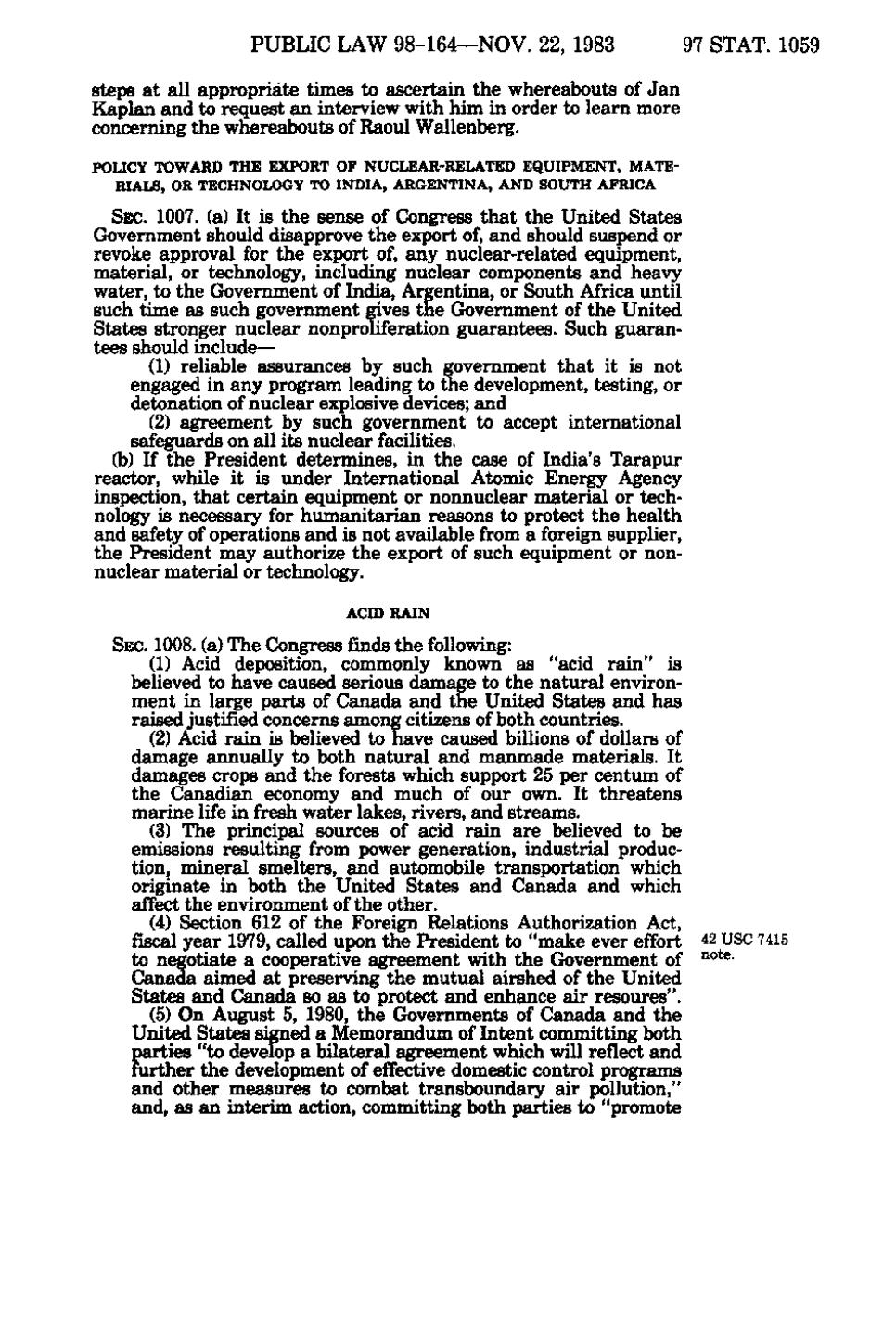PUBLIC LAW 98-164—NOV. 22, 1983 97 STAT. 1059 steps at all appropriate times to ascertain the whereabouts of Jan Kaplan and to request an interview with him in order to learn more concerning the whereabouts of Raoul Wallenberg. POLICY TOWARD THE EXPORT OF NUCLEAR-RELATED EQUIPMENT, MATE- RIALS, OR TECHNOLOGY TO INDIA, ARGENTINA, AND SOUTH AFRICA SEC. 1007. (a) It is the sense of Congress that the United States Government should disapprove the export of, and should suspend or revoke approval for the export of, any nuclear-related equipment, material, or technology, including nuclear components and heavy water, to the Government of India, Argentina, or South Africa until such time as such government gives the Government of the United States stronger nuclear nonproliferation guarantees. Such guaran- tees should include— (1) reliable assurances by such government that it is not engaged in any program leading to the development, testing, or detonation of nuclear explosive devices; and (2) agreement by such government to accept international safeguards on all its nuclear facilities. OJ) If the President determines, in the case of India's Tarapur reactor, while it is under International Atomic Energy Agency inspection, that certain equipment or nonnuclear material or tech- nology is necessary for humanitarian reasons to protect the health and safety of operations and is not available from a foreign supplier, the President may authorize the export of such equipment or non- nuclear material or technology. ACID RAIN SEC. 1008. (a) The Congress finds the following: (1) Acid deposition, commonly known as "acid rain" is believed to have caused serious damage to the natural environ- ment in large parts of Canada and the United States and has raised justified concerns among citizens of both countries. (2) Acid rain is believed to have caused billions of dollars of damage annually to both natural and manmade materials. It damages crops and the forests which support 25 per centum of the Canadian economy and much of our own. It threatens marine life in fresh water lakes, rivers, and streams. (3) The principal sources of acid rain are believed to be emissions resulting from power generation, industrial produc- tion, mineral smelters, and automobile transportation which originate in both the United States and Canada and which affect the environment of the other. (4) Section 612 of the Foreign Relations Authorization Act, fiscal year 1979, called upon the President to "make ever effort 42 USC 7415 to negotiate a cooperative agreement with the Government of ' ^°*®- Canada aimed at preserving the mutual airshed of the United States and Canada so as to protect and enhance air resoures". (5) On August 5, 1980, the Governments of Canada and the United States signed a Memorandum of Intent committing both parties "to develop a bilateral agreement which will reflect and further the development of effective domestic control programs and other measures to combat transboundary air pollution," and, as an interim action, committing both parties to "promote
�
